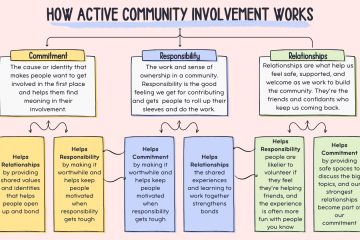I’m about to pose a question.It’s one I think about quite regularly. I bet you have, too. It’s also a question I genuinely don’t know the answer to. Anyone, and I mean absolutely anyone, who says they have an answer to it is oversimplifying the question for their personal gain. And that question is this—how do we move past the constant name-calling, tribalism, and calling out of mistakes that the internet has created?
I can tell you what I know, what I’ve seen, what I think might help. But they’re just my ideas, based on my own experiences.
“They’re really more what you call guidelines”
Martin Luther King, Jr.’s “Letter from a Birmingham Jail” has been one of the most oft-quoted works on the internet of late. The stirring takedown of both-sidesism and waiting for justice to come is catnip to a certain type of person. Or maybe you spend more time online seeing Thomas Paine quotes about how terrible “sunshine patriots” are. They don’t exactly leave us a lot of room for moderation, do they? Whatever your actual politics, the idea is simple: the world is terrible, the bad people are destroying everything, and it’s vital that we remain constantly vigilant to be a good, moral person.
I feel like too many of us are under the impression that we have to display fervor and conviction to social causes online that simply can’t be matched in our day-to-day lives, and the clash is doing our heads in. I can’t think of a single person who doesn’t make compromises in their daily lives that are seen as traitorous to the cause on the internet.
In the real world, we will interact with people of all kinds. The vast, vast majority of us will try to be polite, make a bit of small talk, and go about our day. But inside we’ll be ruminating about how the people who aren’t like us are terrible, or how one negative interaction proves how awful everything is, and ultimately how it’s our job as one of the good people to point out the bad things and try to fix them. The internet has created rules that are impossible to maintain in real life.
But…but…these things are important!
I know, and that’s why I’m at such a loss. I can sit here and say that we should be more open and forgiving to people, including ourselves. That doesn’t change the fact that there are terrible things done every day that require people to speak out against injustice.
I don’t have a good answer.
The cat is out of the bag. We’re never going to be able to go back to a time when we aren’t keenly aware of how interconnected things are, how history has shaped the modern world, and just how prevalent discrimination continues to be. Many of us are going to continue to want to fight to make things better every chance we get.
That makes it difficult to imply that the easy thing is just to get people of differing opinions together and *poof* magic, we’re all friends. It’s not going to work that way. Like the “Black Jeopardy!” sketch on SNL with Tom Hanks explained perfectly through satire, the major differences are always going to pop up. People have strong feelings, and we’re still learning how to deal with them in a constructive way.
Let’s Compare Gay Marriage to Jan 6…wait, what?!
In 2015, when Obergefell v. Hodges was decided by the Supreme Court and gay marriage became legal across the country, many people were in awe of how quickly public sentiment on the topic had changed.
Social science had an explanation, known as the contact hypothesis. To boil it down to its most basic, it says that we’re less likely to have negative feelings about another group of people the more often we encounter them. Same-sex marriage had a unique benefit in that respect. It became more common for someone to have a relative or acquaintance that came out as gay, and that helped change attitudes. Now that’s not to say that there weren’t people who faced terrible prejudice from their families after coming out, but in the aggregate it worked. [1]
Research on the events of January 6, 2021 has had some opposite findings, however. Study participants in parts of the country who live in areas with more rapid demographic change, both a steep increase or decrease in diversity, were likelier to call that day a “protest”, versus people in areas with slower rates of change who call it an “insurrection”. How people voted didn’t have an effect. [2]
So in one case, contact with different people, or “outgroups” to use the technical social science term, was linked with more openness and positive feelings, but in another that contact was linked with more negativity. How does that work?
My theory as an armchair sociologist is that two factors are at play. In the case of same-sex marriage, people frequently had existing relationships with LGBTQ+ people before they came out, so the contact was based on existing respect. Second is that in the intervening ten years we’ve all become less social and forgiving in our interactions, mostly due to being online more and facing the oversimplifications that entails. So despite living in more diverse communities we’re not actually engaging in those communities in a way that builds relationships.
I read a study that summed it up quite nicely. Positive experiences with diverse groups in-person were the best at lowering prejudice. But what surprised the authors (and what probably does a better job of explaining the phenomenon than my own rant) is that negative experiences with other groups online increased feelings of prejudice more than in-person negative experiences. [3]
Because, the internet.
Big Feelings and Bigger Ideals
How we start to engage in our new, diverse communities in ways that are constructive and welcoming is the Gordian Knot of our time, only we don’t have a beefy Greek demigod who can just cut right through it.
Talking to friends in-person over the last couple years, it’s clear most of us are tired of being mad all the time. We’re aching to connect with others, but our digital lives have created divides we don’t know how to bridge in the real world. The contact hypothesis seems to work, but it seems too big and scary for us to try.
That’s why I think it’s not enough to go out for a single mixer, happy hour or even dinner, no matter how much the organizers say they’re promoting “real connection.” Joining a club or some other group that meets regularly is going to help much more, because you’re building a relationship based around something completely separate that establishes respect, trust, and all the other important things we need to bond and start having the needed dialogues.
It’s also incredibly important that we remember that each individual has their own moral compass and lines in the sand that they don’t want to cross, and that’s OK. Life is full of compromises and times that we need to bite our tongue. Far from being a sign of moral failing, it takes great strength and wisdom to navigate the world and affect meaningful change. Diversity, whether ethnic, religious, or political, is hard. Let’s acknowledge that we’re tackling a complicated subject with no easy answers and be gentler with each other.
“Go out and be open to new experiences and people who are different from you” might sound like glib advice, but I think what I’m actually trying to say is that it’s not wrong. The problem I see is that the rapid rise of social media and other online communication has convinced us that it’s an impossible idea, and we have to start by getting that out of our systems. Work locally. Start small. Ignore the voices that say what you’re doing isn’t good enough to really make a difference.
The one thing that can make a difference is for each of us to start figuring out our own ways to answer that question, and be patient and kind as we try to figure out what comes next.
[1] “People with gay and lesbian acquaintances tend to support same-sex marriage“, Penn State University
[2] “How America’s increasingly diverse communities shape views of the January 6th insurrection“, London School of Economics
[3] Bond J, Dixon J, Tredoux C, Andreouli E. The contact hypothesis and the virtual revolution: Does face-to-face interaction remain central to improving intergroup relations?



0 Comments